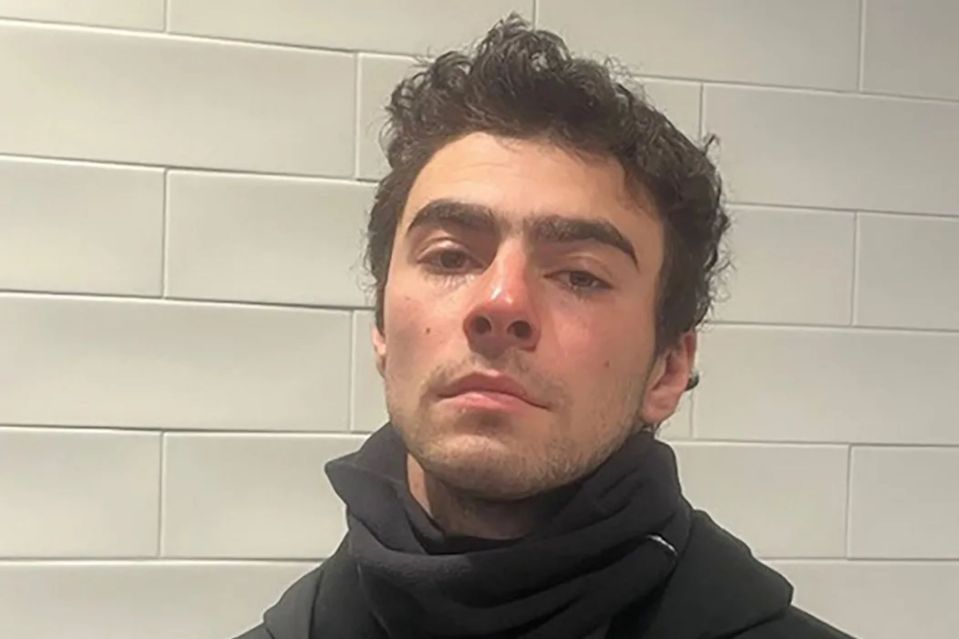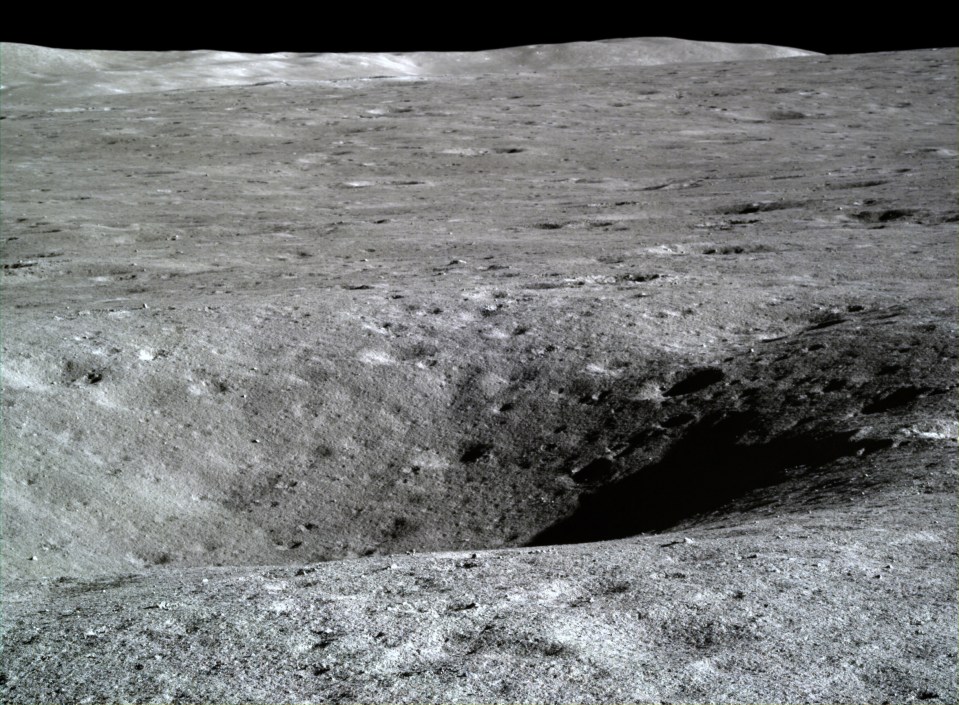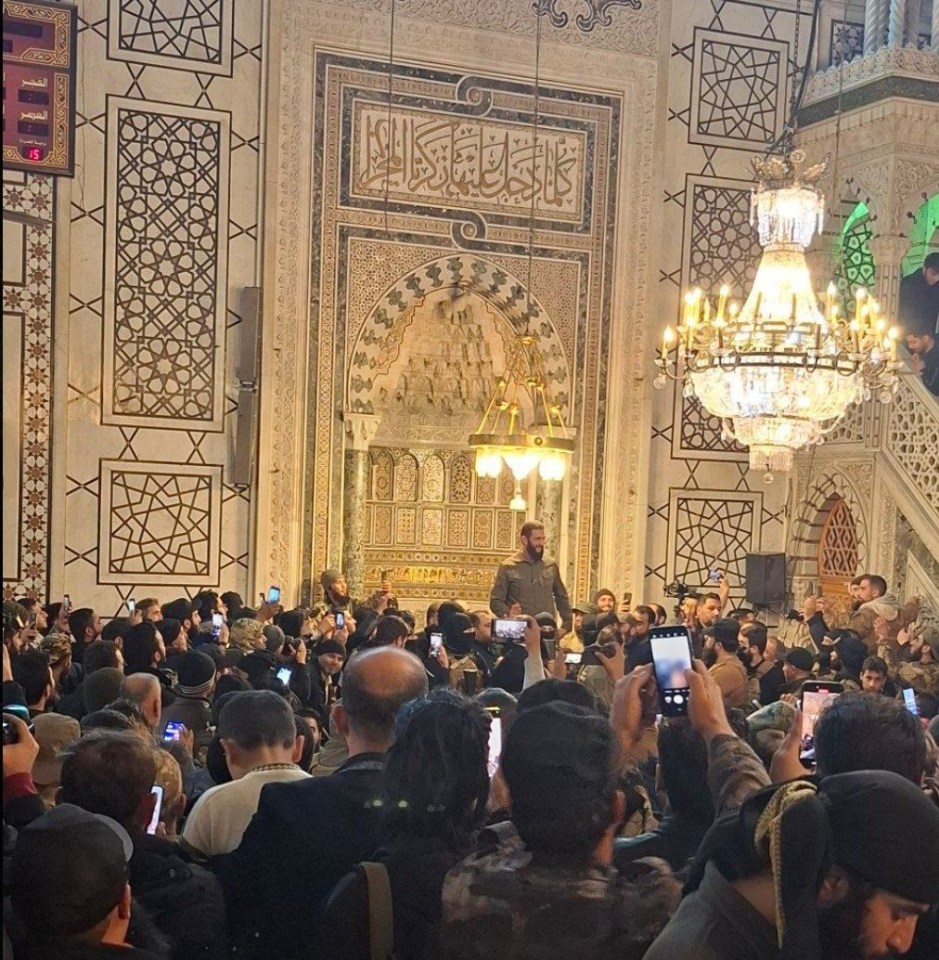How Assad was toppled by rebel leader Abu Mohammed al-Jolani who has £8m bounty on head & once praised 9/11 hijackers
Rebel leader Abu Mohammed al-Jolani, who is wanted for $8 million, overthrew Bashar al-Assad.
The 9/11 terror attacks motivated the Islamist, whose true name is Ahmed Al Sharaa, to become a jihadi. He previously served with al-Qaeda and ISIS.
After his group, Al-Jolani might become the next leader of Syria.The primary force behind the lightning offensive that overthrew Assad was Hayat Tahrir al-Sham (HST).
Given the number of conflicting religions and ideologies in Syria, it is uncertain what the political settlement will be in the wake of Assad.
But currently in charge is al-Jolani, who fought alongside al-Qaeda in Iraq after the US invasion in 2003.
After the September 11 terrorist attacks in New York, he became first interested in jihadist ideas.
Read more on world news
He joined ISIS in 2012 after being detained in some of the harshest jails in Iraq in 2006.
In order to create al-Qaeda’s Syria offshoot, he returned to Syria in 2011 with six guys and a stipend of $40,000.
In 2016, he founded the Organization for the Liberation of the Levant, or HTS. A year later, the United States designated it a terrorist organization and put an 8 million dollar premium on his head.
As a less radical organization, HTS has attempted to distance itself from its terrorist anti-Western Jihadist origins.
Al-Jolani, for instance, wears simple khaki fatigues rather than the traditional Jihadist attire.
Additionally, the organization expelled ISIS and al-Qaeda members and cells from its territory and positioned itself as a strong anti-Iranian ally to the West.
Putin s butcher pal Assad TOPPLED as rebels seize Damascus & his own army says tyrant s 24-year rule is over
The organization formed a semi-technocratic administration in Idlib and the region of northwest Syria it controlled, and he told PBS in 2021 that he had no intention of going to war with Western countries.
After Assad’s death, it issued a triumph statement that read: “Decades of oppression and tyranny have been shattered by the great Syrian revolution, creating a new Syria.
“Today, it has moved from the struggle to overthrow the Assad regime to the struggle to build a Syria that honours the sacrifices of its people.”
Additionally, it stated that it will strive “for a free, democratic, and pluralistic Syria” and hand over control to a transitional governing body.
Al-Jolani stated in a CNN interview that if HTS took possession of residents’ homes, they would have little reason to be alarmed.
He continued: “People who fear Islamic governance either have seen incorrect implementations of it or do not understand it properly.”
Christians and other religious and ethnic minorities would be protected under HTS control, according to Al-Jolani.
“No one has the right to eradicate another group,” he stated. No one has the authority to eradicate these groups because they have lived side by side in this area for hundreds of years.
Al-Jolani also described in the interview how the HTS overran the regime’s troops.
He said that the creation of “institutional structures” and a “unification of internal opinion” had strengthened the group.
In order to make the forces manageable, HTS also restructured its military and instituted uniform training and stringent discipline.
“They withdraw where they should withdraw and stop where they should stop,” he remarked.
“The revolution has transitioned from chaos and randomness to a state of order in both civil and institutional matters and military operations alike.”
Men have reportedly coerced women and girls into marriage, human trafficking, and sex slavery.
In the horrific violations of human rights, some have even been known to be given as “gifts” to commanders.
Assad’s prime minister visited the rebel leadership in the city, marking the start of the rebels’ takeover of authority.
Early on Saturday, PM Mohammad Ghazi al-Jalali was on his way to Damascus, the insurgents’ headquarters, to start the process of handing over control to the militants who had won the battle.
“The matter is up to any leadership chosen by the people and we are ready to cooperate,” he added in a previous video statement. “All the properties of the people and the institutions of the Syrian state must be preserved.”
“I hope all Syrians think rationally about the interests of their country.”
Read More on The US Sun
Al-Jolani gave a speech inside the Umayyad Mosque, where he could be seen grinning at fans, after arriving in Damascus on Saturday afternoon.
A humiliated Assad reportedly resigned as president, left the country, and pleaded for a “peaceful transfer” of power, according to the Russian Ministry of Foreign Affairs.
A timeline of the Syrian civil war
A almost 14-year civil war in Syria may come to an end with the abrupt fall of Assad’s regime.
2011: The initial anti-Assad demonstrations swiftly expanded throughout the nation, and security forces responded with a flurry of shootings and arrests.As the unrest turns into an armed revolt that will receive assistance from Turkey as well as Western and Arab nations, some protestors pick up guns, and military units desert.
2012: Al Qaeda’s new Syrian affiliate, the Nusra Front, gains authority and begins eradicating groups with a nationalist ideology after carrying out its first bombing in Damascus.
Years of U.N.-sponsored peace attempts will be thwarted by the world powers’ disagreements over how to accomplish the political transition, despite their agreement in Geneva that one is necessary.
As rebels gain ground and the conflict intensifies with both sides committing killings, Assad directs his air force toward opposition strongholds.
2013: Hezbollah in Lebanon aids Assad with his triumph at Qusayr, reversing the rebels’ momentum and demonstrating the group’s expanding involvement in the war.
A gas strike on rebel-held eastern Ghouta near Damascus kills dozens of civilians without prompting a U.S. military response, despite Washington’s declaration that chemical weapons use a red line.
The Islamic State group abruptly takes control of Raqqa in the northeast in 2014 and expands its territory in Syria and Iraq.
Their first significant loss in a major city, the surrender of the rebels in the Old City of Homs and their agreement to relocate to an outside suburb served as a model for subsequent “evacuation” agreements.
In order to help Kurdish troops reverse the jihadist trend, Washington forms an anti-Islamic State alliance and launches airstrikes, which strains relations with its partner Turkey.
2015: Islamist militants are playing a larger role, but rebel groups gain progress and take control of northwest Idlib with improved cooperation and more foreign-supplied weapons.
With airstrikes, Russia enters the battle on Assad’s side, turning the tide against the rebels for years to come.
2016: Turkey invades the area with rebel allies after becoming alarmed by Kurdish gains along the border, creating a new area under Turkish authority.
Assad’s greatest war win at the time was the defeat of insurgents in Aleppo by the Syrian army and its allies.
After breaking away from al Qaeda, the Nusra Front attempts to project a more moderate image by taking on a number of different names until deciding on Hayat Tahrir al-Sham (HTS).
2017: Israel admits to using airstrikes against Hezbollah in Syria in an effort to weaken Iran’s and its allies’ increasing power.
Islamic State is defeated in Raqqa by Kurdish-led forces supported by the United States. The jihadist organization is driven from almost all of its territory by that onslaught and another one launched by the Syrian government.
2018- The Syrian army recaptures eastern Ghouta, before quickly retaking the other insurgent enclaves in central Syria, and then the rebels’ southern bastion of Deraa.
2019: The final remnant of Islamic State’s territory in Syria is lost. In order to stop attacks on its Kurdish allies, the United States chooses to retain some soldiers in the nation.
2020- Russia backs a government offensive that ends with a ceasefire with Turkey that freezes most front lines. Assad appears to be firmly established, controlling the majority of the country and all major cities. Rebels hold the northwest.
A Turkey-backed force holds a border strip. The northeast is ruled by Kurdish-led forces.
2023- The Hamas attack on Israel on Oct. 7 triggers fighting between Israel and Hezbollah in Lebanon, ultimately reducing the group’s presence in Syria and fatally undermining Assad.
2024- Rebels launch a new assault on Aleppo. With Assad’s allies focused elsewhere his army quickly collapses. Eight days after the fall of Aleppo the rebels have taken most major cities and enter Damascus, driving Assad from power.
Note: Every piece of content is rigorously reviewed by our team of experienced writers and editors to ensure its accuracy. Our writers use credible sources and adhere to strict fact-checking protocols to verify all claims and data before publication. If an error is identified, we promptly correct it and strive for transparency in all updates, feel free to reach out to us via email. We appreciate your trust and support!















